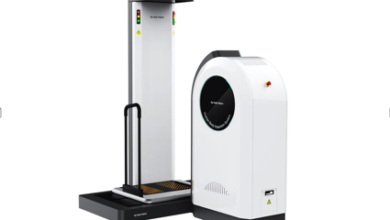Why Remote Medical Scribes Are Essential in Modern Medicine

With technological advancements and medical procedures, the healthcare sector has undergone changes to enhance its efficiency, effectiveness, and patient focus. One key innovation driving this change is the incorporation of scribes. These scribes play a role in healthcare by improving workflow, enhancing patient care, and lessening the administrative burden on healthcare professionals, among other advantages.
Improving Workflow Efficiency
Remote scribes are instrumental in streamlining workflows in settings. They allow doctors to concentrate more on care while handling documentation and administrative tasks. The primary duty of a scribe is to record patient interactions promptly in the Electronic Health Record (EHR) system. This meticulous documentation ensures the capture of all engagements, medical histories, diagnoses, treatment plans, and follow-up details. As a result, physicians can dedicate time to direct patient engagement and less time inputting data into the EHR system, thus optimizing workflow.
Furthermore, remote medical scribes facilitate appointment organization by managing scheduling tasks. Overseeing these duties contributes to patient wait times and maintains a coordinated clinical setting. The enhanced efficiency level helps the healthcare facility run smoothly, benefiting patients and healthcare providers.
Enhancing Patient Care
A pivotal aspect of healthcare lies in prioritizing top-notch patient care. Remote medical scribes play a role in achieving this objective by enabling physicians to focus on addressing patients’ needs during consultations. By eliminating the need for data entry distractions, healthcare providers can establish connections with their patients, fostering stronger patient-provider relationships and enhancing overall patient satisfaction.
Moreover, the meticulous and precise documentation provided by scribes ensures a record of patient information crucial for maintaining continuity of care. Thoroughly documenting a patient’s history, current health status, and treatment plans leads to informed and effective clinical decisions. This precision in documentation also promotes communication within the healthcare team, ensuring that all members are well-informed about the patient’s condition and treatment regimen.
Mitigating Physician Burnout
Physician burnout is an escalating concern in the field due to the demanding nature of patient care responsibilities and administrative duties. Remote medical scribes can alleviate some of this strain.
By taking care of the time-consuming paperwork tasks, scribes give doctors time to focus on their role—delivering medical care. The decrease in duties is directly linked to stress levels and reduced burnout among healthcare professionals. This allows physicians to achieve a work-life balance that benefits their well-being and enhances their ability to provide compassionate and effective patient treatment. Such positive changes in the workplace environment can increase job satisfaction and employee retention rates within the healthcare field.
Cost Effective Solution
Employing remote medical scribes presents a cost option for healthcare institutions. Hiring scribes can be costly due to expenses related to salaries, benefits, training, and office space requirements. On the contrary, remote scribes eliminate the need for infrastructure. They can be engaged as needed based on the clinic’s specific requirements.
The savings from using scribes can be redirected to other essential areas in healthcare facilities, such as patient care initiatives, technology upgrades, and staff development programs. This strategic allocation of resources enhances the quality of healthcare services offered.
Ensuring Accuracy in Documentation
The healthcare sector must adhere to regulations requiring thorough documentation of patient interactions. Remote medical scribes play a role in meeting these standards without overburdening physicians. These scribes are well-versed in terminology and documentation guidelines, ensuring that patient records are detailed, precise, and compliant with requirements.
Precise documentation helps reduce the chances of errors and omissions that could result in malpractice claims. With a dedicated remote medical scribe documenting every aspect of an encounter, the reliability of records is enhanced, offering a comprehensive overview of the patient’s health history and treatment.
Supporting Training and Learning
Remote medical scribes often have healthcare backgrounds and aspire to work in the field. Their responsibilities provide them with exposure to clinical environments, aiding in their education and training. By collaborating with physicians and other healthcare professionals, scribes gain insights into procedures, patient interactions, and the nuances of healthcare delivery.
This practical experience benefits the scribes and contributes to building a knowledgeable and competent workforce within the healthcare industry. Those who progress to become healthcare providers from the role of scribes bring a grounding in documentation and a recognition of the significance of precise record-keeping, which enriches their future professional practice.
Adaptability Across Different Specialties
A notable advantage of scribes is their ability to adapt to various medical fields. Whether in care emergency medicine orthopedics or dermatology, remote scribes can adjust their documentation methods to meet the requirements of each specialty. This flexibility makes them an invaluable resource in healthcare environments.
In clinics where detailed and specific documentation is crucial, remote medical scribes ensure that every aspect of patient care is accurately recorded. This adaptability also means that healthcare providers in specialties can benefit equally from the assistance of scribes, resulting in enhancements in workflow efficiency and patient care quality throughout the healthcare landscape.
Supporting Telehealth Practices
The increasing prominence of telemedicine has emerged as a trend in contemporary healthcare, particularly due to the impact of COVID-19. Remote medical scribes are well suited to cater to practices’ needs. By documenting virtual patient interactions, scribes guarantee that the same level of precision and thoroughness is maintained during face-to-face consultations.
Furthermore, remote assistants can help manage telehealth appointments, coordinate follow-up care, and ensure that all necessary paperwork is handled efficiently. The seamless integration of assistants into telehealth practices enhances care, offering a strong and practical option for both patients and healthcare providers.
Read also: Patrick Dai Cornell: A Visionary in Blockchain Technology
Improving Communication and Team Collaboration
Effective and clear communication is crucial in medicine. Remote medical assistants play a role by providing thorough documentation that fosters better communication within the healthcare team. A collaborative approach to patient treatment is encouraged for all team members’ records.
Physicians, nurses, and other medical professionals can rely on the precise documentation assistants provide to grasp the patient’s medical history, current status, and treatment plan. This collaborative setting ensures that patient care is well coordinated and cohesive, leading to better health outcomes.
Future Opportunities and Innovations
As technology progresses, the role of assistants is expected to develop further. Advancements in healthcare technology, like health record (EHR) systems and secure communication platforms, will enhance the capabilities of remote assistants, making their work even more efficient and impactful.
The increasing need for scribes is expected to lead to the establishment of more specialized training programs and certifications, ensuring that scribes are well-prepared to meet the changing demands of the healthcare sector. This ongoing development will underscore remote medical scribes’ role in medicine.
In summary
Remote medical scribes are essential in today’s healthcare landscape, assisting doctors and healthcare systems. Their proficiency in documentation, including accurate medical record data entry, ability to adapt to specialties, and contribution to telemedicine practices, make them valuable in improving patient care quality. With advancements and training enhancements, the role of remote medical scribes will continue to expand and develop, shaping a brighter future for healthcare. Ultimately, their presence allows providers to concentrate on delivering care to patients. Let us welcome this approach and observe its impact on the healthcare industry as a whole.




